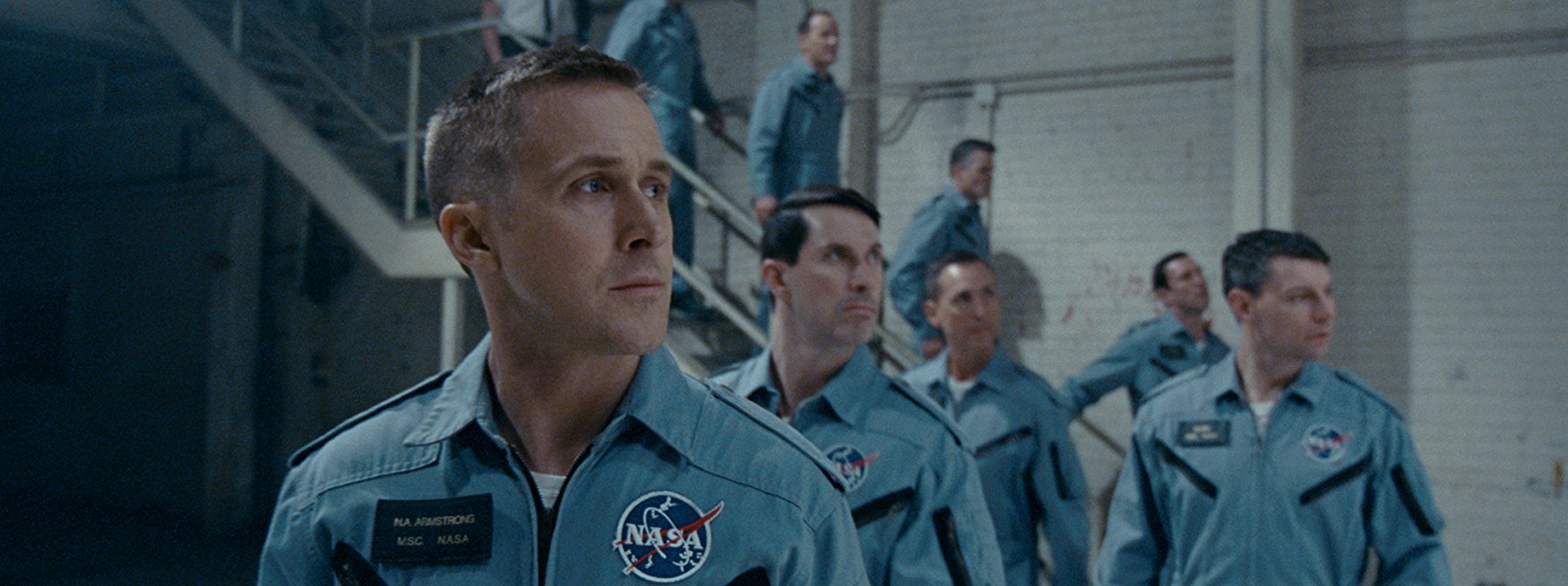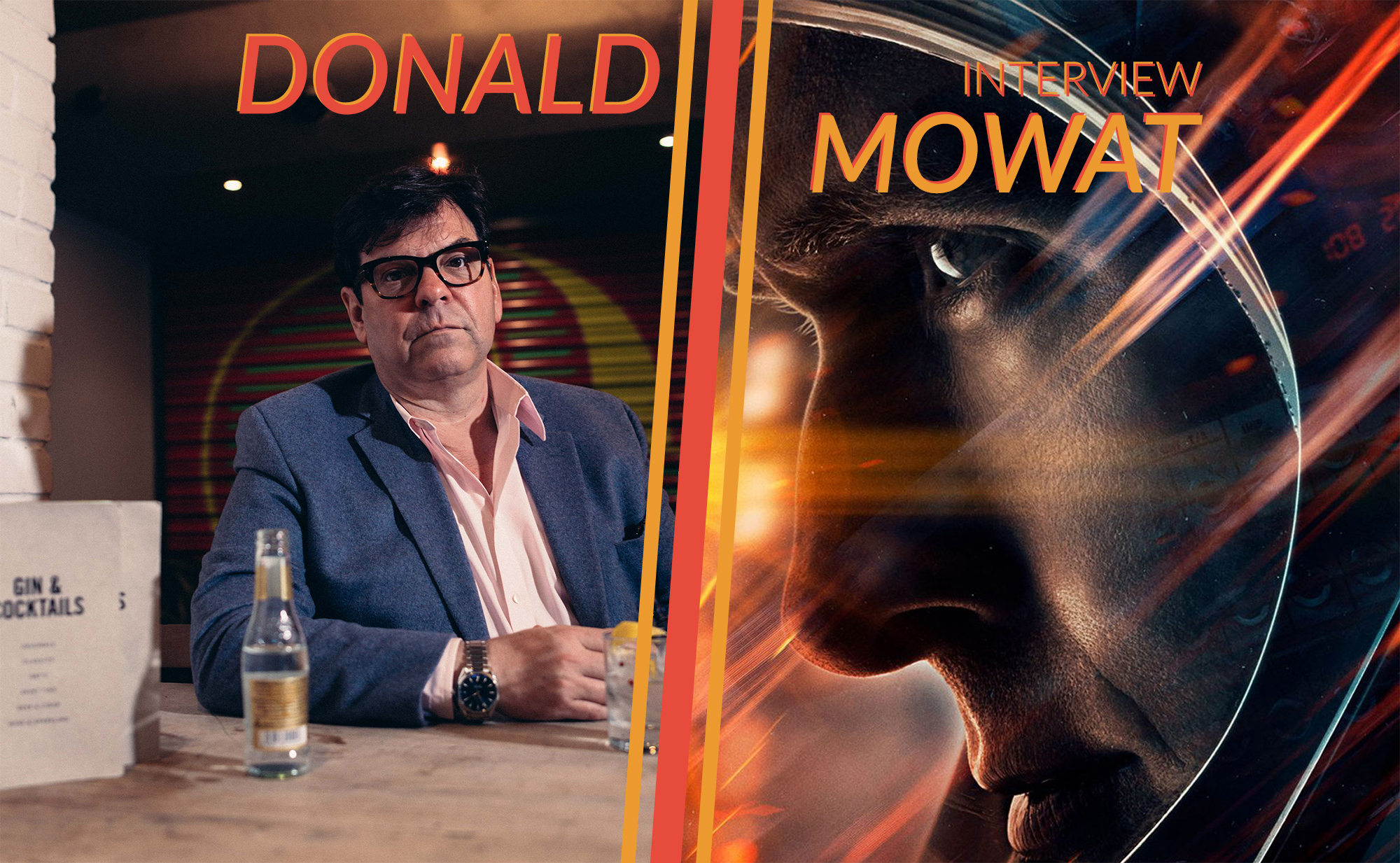“I think in the end people remember that.” – Donald Mowat.
These are the words that Donald Mowat spoke to us about his devotion to his work and, especially, to the people he works with. People who helped him but, above all, people that keep on working with him not only for his skills and ability but also for his sense of respect and love: things that, for him, come first.
Donald Mowat, makeup artist nominated at the Bafta for the film “Blade Runner 2049,” who transformed in such a delicate way Jake Gyllenhaal for “Stronger” and that counts in his curriculum films such as “Sicario” and”Prisoners,” brings to the Venice Film Festival his new work, the (wonderful) “First Man” directed by Damien Chazelle that tells the life of Neil Armstrong and his wife, played by Ryan Gosling and Claire Foy.
We met Donald for the first time in London on the occasion of the 2018 Bafta and he never ceases to amaze us for the genius of his work, for his dedication, his teaching programs and projects that always seem to rewrite the concept excellence. In “First Man,” we saw Claire Foy without her typical glamour and a Ryan Gosling who, even with the smallest details of his skin and eyes, makes clear the suffering that comes with such a role.
Donald’s work is careful, fine, delicate, energetic and unique.
Donald himself is a unique person and, with us, he has not only opened up about “First Man,” and the difficulties of making particular traits of the characters, but also about the challenges of the world of cinema, of how he recently recovered after a health problem and how he dealt with “First Man,” his first job after going back to work. Donald’s strength allows him to see the beauty in life without hiding anxieties or worries: without the lie of “What’s simple,” Donald confronts his fears by talking about them and opening his heart. And he did it with us too, in this interview.
__________
What kind of research did you do for the makeup?
__________
It’s interesting because I was a little bit worried about the period: the ‘60s, it’s not my favorite at all. And I was a little bit worried that we would also be trying to recreate people. But the research that Damien Chazelle presented was better than anything I had ever seen so when I opened Damien’s files that were for costume and makeup, it was all done. It was so impressive.
Usually, a director would do something, would add something. But this was the most impressive: he gave specific clips of things and of course a lot of them I was already thinking for the film. We talked about the little changes that somebody goes through during a dramatic period. We referred to Al Pacino in “The Godfather” because there is a little bit of aging but it’s very subtle.
But I have to say I was unbelievably impressed with Damien. We tried a little research with some of the other characters, I think they were trying not to look like them, they didn’t want to spend the time and the money and the prep to do lookalikes for everybody but I think we captured the essence of them.
– CAPTURE THE ESSENCE –
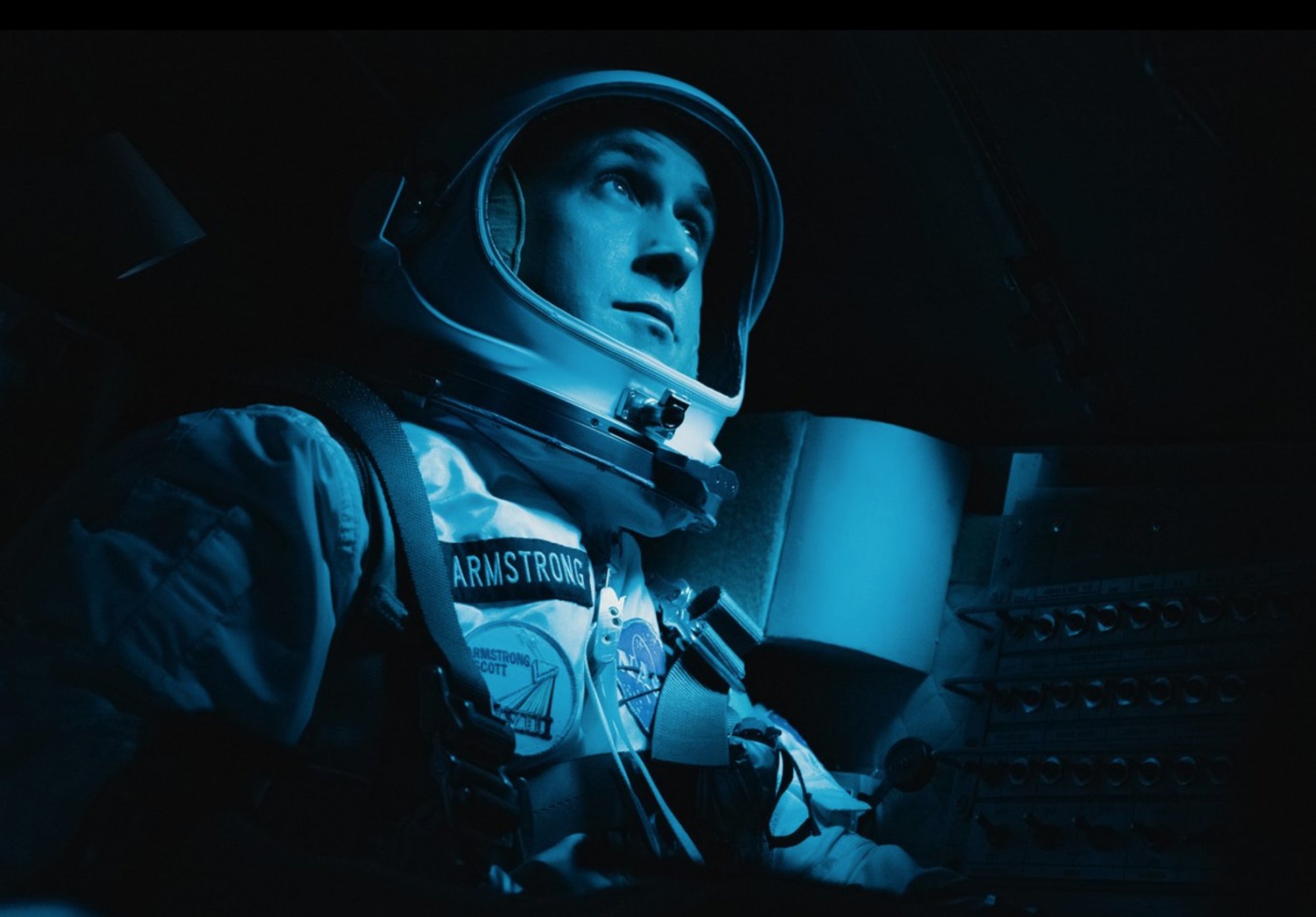
__________
About Ryan Gosling, how was working with him again after “Blade Runner 2049”?
__________
I had the greatest experience with him in “Blade Runner 2049.” In fact, it was on that movie that he told me about “First Man”: “this is a very good script, I’m going to work on it, I’m going to produce it with Damien Chazelle,” he then talked about Claire Foy and I love her, she is such a good actress.
You know, I really have a lot of respect for him. For example, the movie is like two films in one: in the first part there are two main things going on and the second part is much more space-related, it was about being in the space, being in this capsule, the stillness, the claustrophobia. Ryan didn’t move, we couldn’t get in for touch-ups, they didn’t drink a lot of water, so they didn’t have to use the bathroom, and so on for three weeks: during Christmas, in the studios, in Atlanta and at night and I was very impressed because we never, never, never complained. Now, actors just complain a lot and he never said to me “I can’t stand it.”
At the start, I was unsure about the job, it was in Atlanta and I was having a couple of concerns with my health, I was a little bit concerned after a big movie as “Blade Runner 2049,” I felt there was going to be a lot of stress in “First Man.” And I think there was a little bit initially because the project was difficult, I mean not in the same way as “Blade Runner 2049” but it was still stressing because it was a really delicate story, someone would call it depressing.
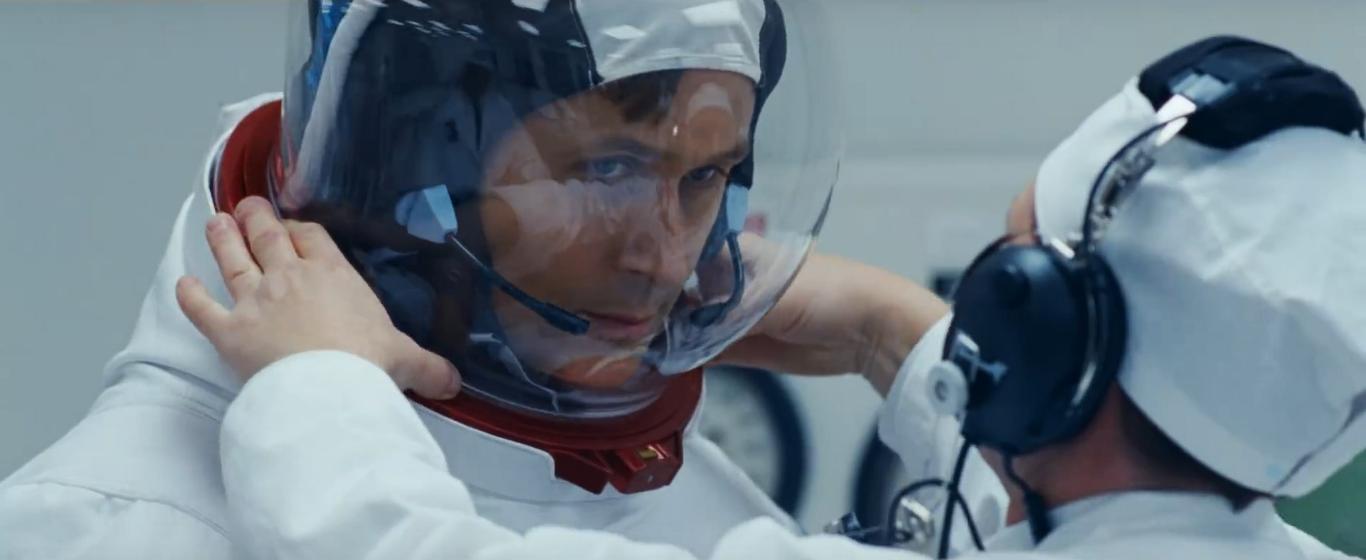
“…Ryan never said to me “I can’t stand it.”.”
__________
Did you work with Ryan and Claire on some specific traits?
__________
Oh yes. There was his hair, we got his haircut for the movie and it was a specific ‘60s haircut. We did a kind of test pre-shoot that was very important for Damien: there were only Ryan, Claire and the kids by the pool, in the house, just like in the homemade movies. It was a very good way to get them warmed up and rehearse a little bit and there will be no one else but I would go, and I did a little bit of makeup on Claire and on Ryan: I think it was really a great way to do it.
It’s pretty basic makeup when you compare it to “Blade Runner 2049” but there is still something hard. The way he is at home, the terrible tragedy…and Claire: we are so used to see her in a glamorous way but she absolutely couldn’t look like that, so that was a little bit harder, it had to be appropriate. I think that the passage of time was then represented by the kids. The kids do it. It’s not possible to really age Ryan of seven years so, how can I show that? The kids change the time.
“I think that the passage of time was then represented by the kids. The kids do it.”
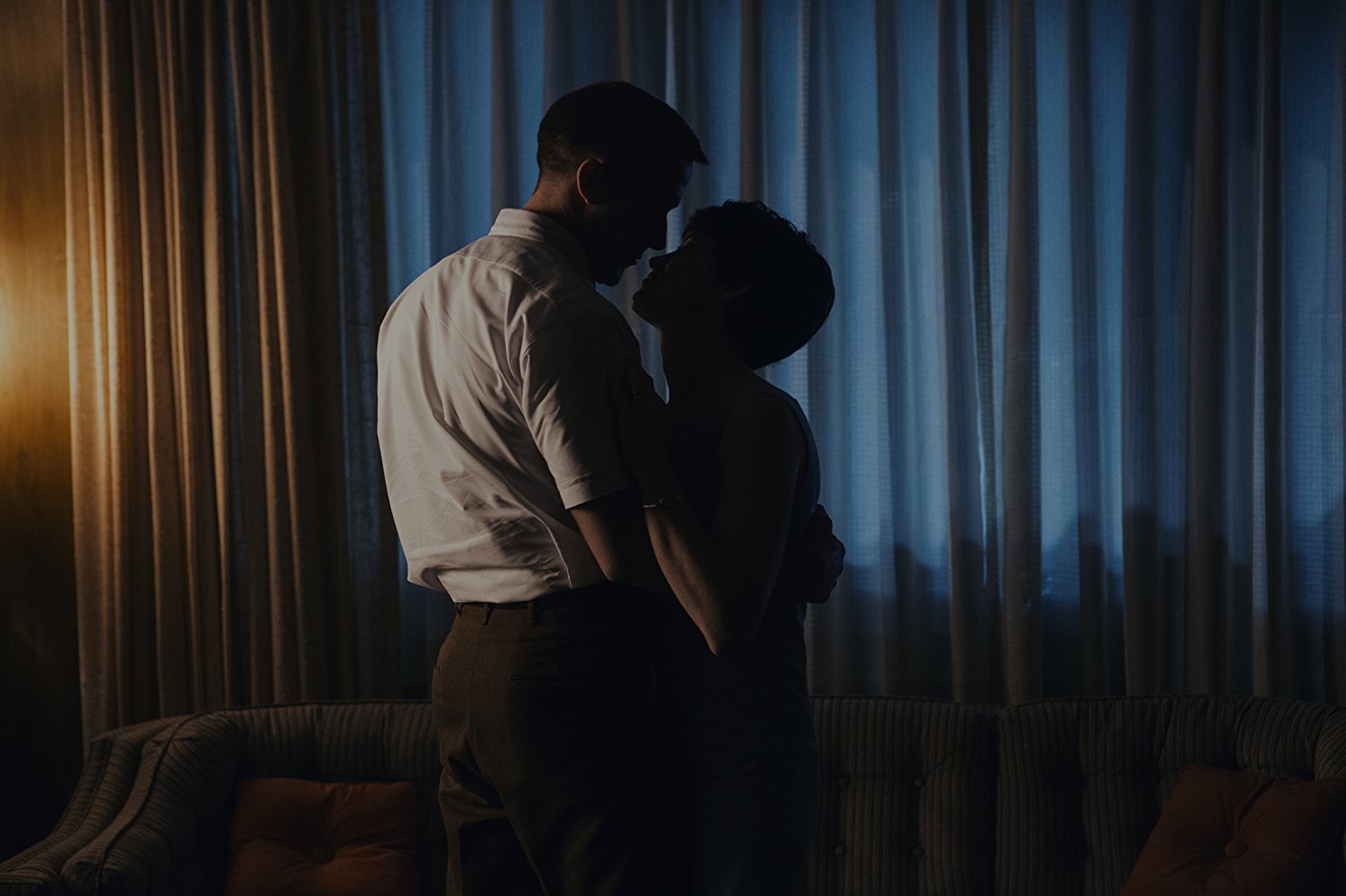
__________
You worked also on another biopic in the last two years: “Stronger,” which we adored. How is for you working on a biopic rather than another movie?
__________
Sometimes people get confused. Because they think that if you want to make a biopic, you have to make a real recreation of the lookalike. But in “First Man” it was different. In the beginning, someone told me we had to make the actors lookalike, but I said: “Wait a second. No one knows, I mean I didn’t know, how those people looked, I had to look it up. That can be a mistake. I don’t think recreation makeup and hair was necessary.”
We did try to do some teeth with Ryan, but it was very expensive and for me, it didn’t work, and Ryan understood it. What I did for example with Jake [Gyllenhaal] in “Stronger” with the contact lenses, came organically. With Ryan it wasn’t the case: after the haircut and a change of makeup, we made him look closer to the essence of Neil Armstrong. Claire Foy really doesn’t resemble the wife but there is a quality, a plainness when you look at the wife, she looked like a little bit sporty, a little bit like a school teacher with no makeup, she only put it for a party. That’s a mistake that a lot of people do about the ‘60’s: they think only about crazy makeup.
__________
You said you don’t like so much ‘60s period movies. But what period movie would you love to work on?
__________
I love the 1940s, there is something about it…I think the War changed a lot of things from the 30’s, still, I love the ‘30s too. I still like the things based on reality. And the most beautiful thing with the production designer and with the costume designer of “First Man” was that we felt all on the same page. We were doing the same movie.
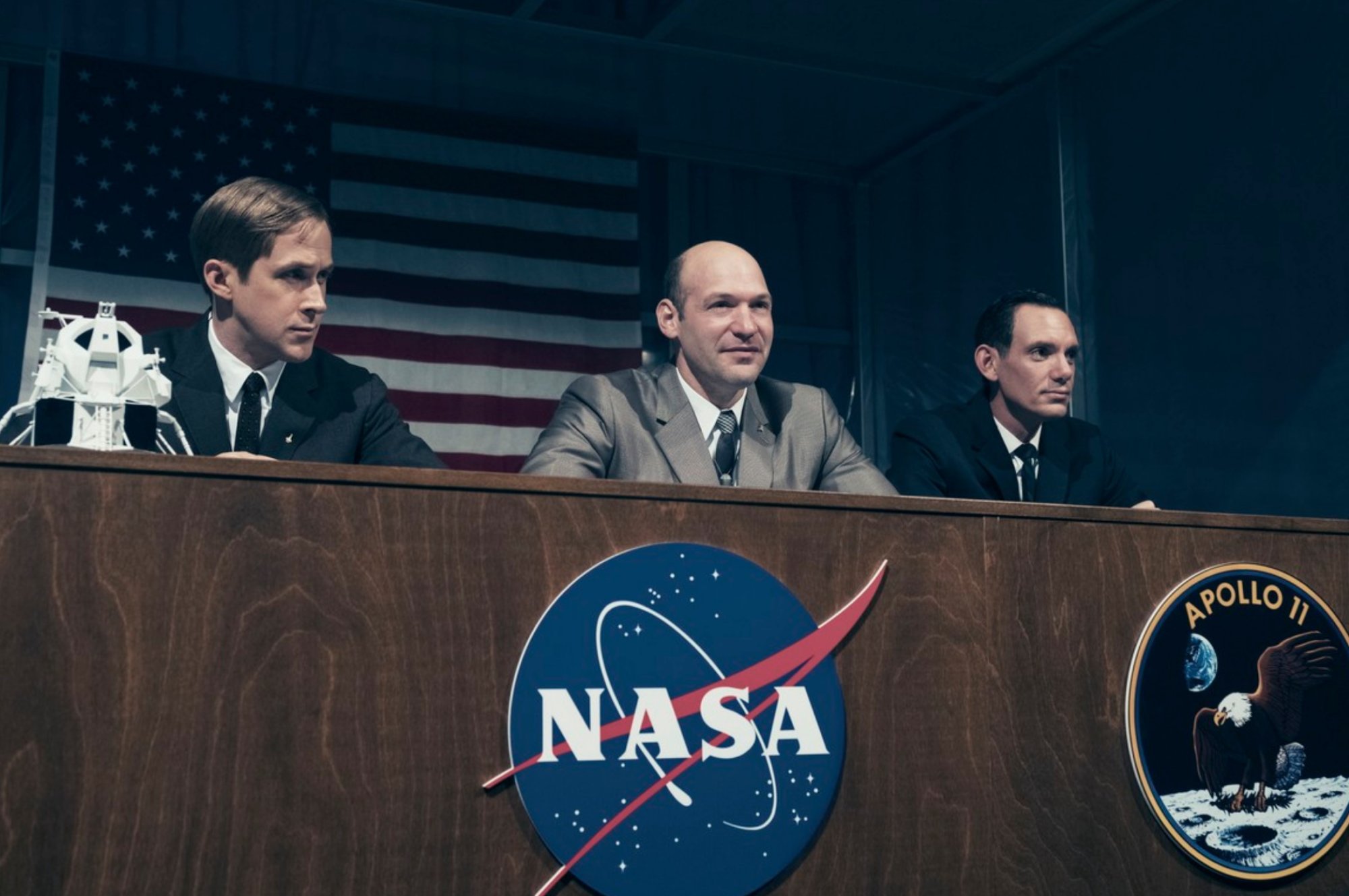
__________
And how was for you coming back to the business?
__________
I had a really bad health problem last year and so it has been a very difficult period of time. “First Man” was my first job when I came back. I think that was very hard for me also because something was happening in the film that I felt could depress me. I felt some anxiety, but I had a great crew, it was very good for me. I really was in post-traumatic stress after what happened to me and I don’t mind talking about it now: “Blade Runner,” the Academy Awards and everything. I started to think that my life was so much more important, and I was so happy to be nominated for a Bafta, for “Blade Runner 2049,” but then what happened with “Stronger” I felt a little bit depressed. But I know what matters. I know what’s good, what I like to watch. My doctor said: “You really have to be careful if you are going back to work.” And I was very lucky because the people that really helped me the most were Jake and Ryan.
When your head and your heart are not matching up it’s the problem. It’s like the Grandfather Clock, there is this hundred-year-old clock that suddenly stops. When I was a child, I remember my grandmother saying: “Don’t touch that clock, don’t touch it,” and of course I did it, I put my finger in it and it stopped. And that’s how I felt.
__________
What was the click that made you said yes to the project?
__________
Ryan one day would text me saying: “I know you are not feeling great, you had the surgery but there is a job for you: let’s go to the Moon!” I felt the film close to me, for example, Neil Armstrong died for a surgery complication, the same surgery I had. So, I felt a strange sensitivity. And I met a lot of people during the film to whom I talked about loss, the beauty of being alive and how lucky we are sometimes. They were all so supportive.
And when I was uncertain, I called a very good friend of mine, a great, great actress, she knows me better than anybody else. She said: “This will be hard, but you can do this, you can do this. Because if you don’t, it will kill you.”
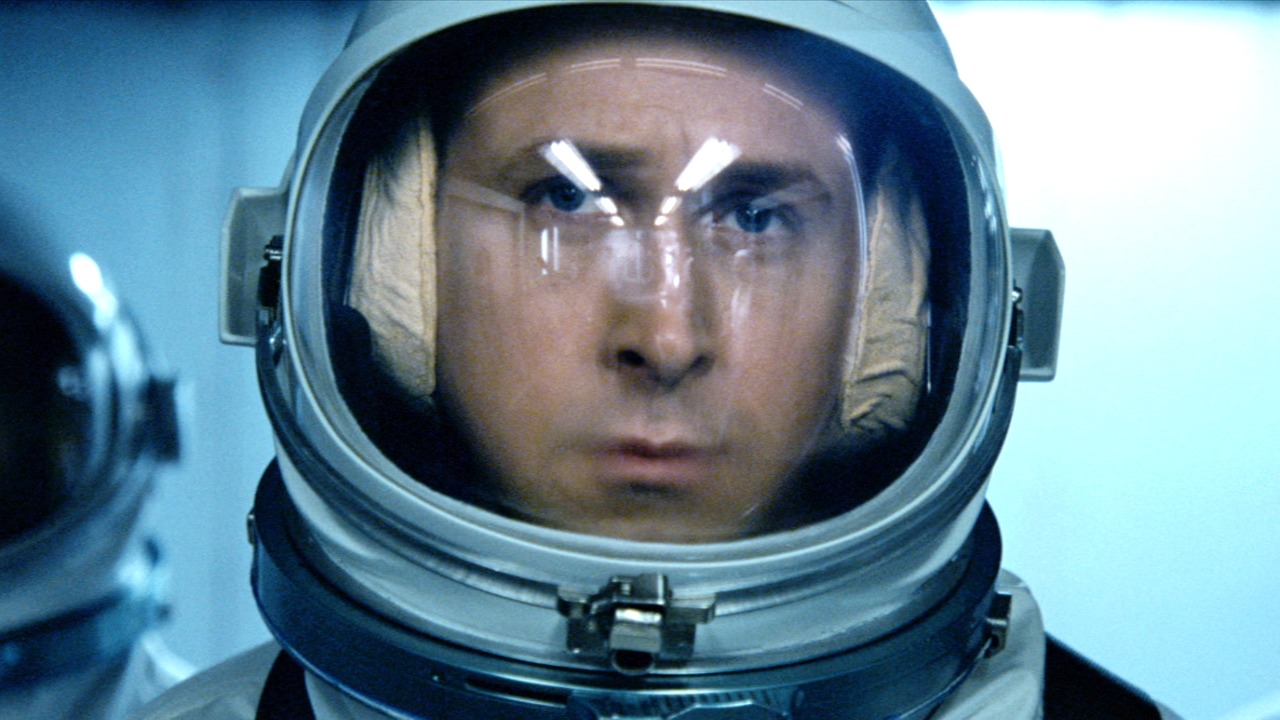
“…This will be hard, but you can do this, you can do this. Because if you don’t, it will kill you.”
In this business, you’re in or you’re out. People were very disappointed that I wasn’t nominated last year, and I knew I wouldn’t be and I think that’s when I thought: “Maybe it will be the Bafta, who knows.” But this is not important because my outreach, my mentorship, helping education programs is so much more important because, in the end, the rest doesn’t matter.
We are all replaceable but the fact that Damien relied on me and he didn’t know me very well, made me feel like I’ve passed this, people were very nice.
__________
How was the mood on set?
__________
The fear helped me talking with people like Ryan because he knew about me. And I talked to Claire one day because she was so lovely with me and I wasn’t feeling so good, and she understood that something was going on, and she asked me what was wrong, and I told her I was feeling I wasn’t giving her 100% because my body really hurt. And she said: “If that is your 70%, well, I’ll take that any day.” And with Damien, we didn’t really know each other really well but he allowed me to put my personal touch.
__________
What are you working on right now?
__________
Now I’m working with Jake Gyllenhaal on “Spider-Man: Far From Home.” I’ve worked on all kind of films but with Marvel it’s different, people love these movies and now I understand why: I was never the kind of guy that went to see a Marvel movie but now that I’m working on one I get it, it’s great to be in that environment; I’m only working for Jake and 12 hours a day, not 15, as I’m used to.
It’s great to see a different style, it’s a little bit old fashion in a way. I’m enjoying it and I find it a bit easier. Also you, as chief editor, have to have some easy interviews so to be prepared for when the interview will be difficult, right? I try to work smart, that’s what actors do all the time: sometimes they have to do a pretty easy job for the money. Here I like the crew, I like the director, it’s a different genre and I’m still learning something new.
